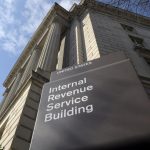45 Day and 180 Day 1031 Deadline Postponements for the State of Florida or North and South Carolina for Hurricane Ian
As we’re getting closer to the end of the year and tax time: just a reminder for those in a 1031 exchange in Florida or North and South Carolina.
In the past, I have posted about the only exception to the 1031 time deadlines, and Hurricane Ian certainly fell into that category of a ‘presidentially declared natural disaster’.
45 Day and 180 Day Postponements for Hurricane Ian
The IRS has issued postponements of the 45-day and 180-day deadlines for the entire State of Florida. The Disaster Date is September 23, 2022. The General postponement date is February 15, 2023.
An “Affected Taxpayer” includes individuals who live, and businesses whose principal place of business is located in, the Covered Disaster Area. Affected Taxpayers are entitled to relief regardless of where the relinquished property or replacement property is located. Affected Taxpayers may choose either the General Postponement relief under Section 6 OR the Alternative relief under Section 17 of Rev. Proc. 2018-58. Taxpayers who do not meet the definition of Affected Taxpayers do not qualify for Section 6 General Postponement relief.
Option One: General Postponement under Section 6 of Rev. Proc. 2018-58 (Affected Taxpayers only). Any 45-day deadline or 180-day deadline (for either a forward or reverse exchange) that falls on or after the Disaster Date above is postponed to the General Postponement Date. The General Postponement applies regardless of the date the Relinquished Property was transferred (or the parked property acquired by the EAT) and is available to Affected Taxpayers regardless of whether their exchange began before or after the Disaster Date.
Option Two: Section 17 Alternative (Available to (1) Affected Taxpayers and (2) other taxpayers who have difficulty meeting the exchange deadlines because of the disaster. See Rev. Proc. 2018-58, Section 17 for conditions constituting “difficulty”). Option Two is only available if the relinquished property was transferred (or the parked property was acquired by the EAT) on or before the Disaster Date. Any 45-day or 180-day deadline that falls on or after the Disaster Date is extended to THE LONGER OF: (1) 120 days from such deadline; OR (2) the General Postponement Date. Note the date may not be extended beyond one year or the due date (including extensions) of the tax return for the year of the disposition of the relinquished property (typically, if an extension was filed, 9/15 for corporations and partnerships and 10/15 for other taxpayers). Please see Revenue Procedure 2018-58, Section 17, and the Notices shown on https://www.irs.gov/newsroom/tax-relief-in-disaster-situations.
If 45-day ID deadline was prior to Disaster Date. The Section 17 postponement (but not the General Postponement) also applies to the last day of a 45-day identification period (but not the 180-day deadline) for a deferred exchange and a reverse exchange that falls prior to the Disaster Date (before 9/23/22) if an identified replacement property or an identified relinquished property is “substantially damaged” by the disaster. No examples are given of substantial damage. The taxpayer apparently is not limited to just substituting a new property for the damaged property, but the taxpayer may identify all new properties.
As each situation is unique, if an exchanger believes they qualify for a disaster extension, they should seek the guidance of their tax advisor or attorney in order to make this determination.



 Follow
Follow

